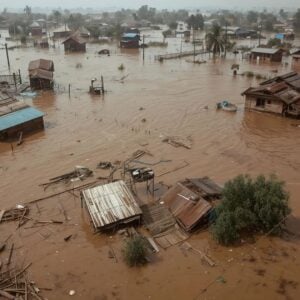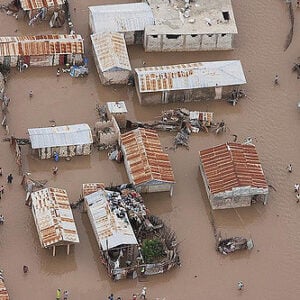Hurricane Melissa is expected to make landfall in Jamaica as a powerful Category 4 or 5 storm, possibly on Monday or Tuesday, marking what could be the strongest hurricane to ever hit the island. According to Esther Pinnock, Communications Officer for the Jamaica Red Cross, heavy rainfall and hurricane conditions are anticipated to begin as early as this evening, affecting several parts of the country. Areas such as Portland Cottage, Rocky Point, and parts of Saint Catherine have already been identified as highly vulnerable, with emergency interventions underway.
The arrival of Hurricane Melissa comes as many communities are still recovering from the devastating impacts of Hurricane Beryl, which struck just 16 months ago and caused over USD 204 million in damages. With many coastal households still financially strained, preparation for this new storm is proving difficult. Experts warn that flooding could surpass that seen during Beryl due to Melissa’s slow movement and recent persistent rainfall, which has already saturated the ground. Low-lying areas face a high risk of storm surges and floods, while informal settlements in Kingston are particularly exposed to strong winds.
In anticipation of the storm, the Jamaica Red Cross has mobilized teams across the island to take early action, support evacuation efforts, and position relief supplies in the most at-risk communities. The organization is working closely with the Jamaica Information Service to identify vulnerable zones and is preparing to provide emergency assistance once the storm passes. Staff and volunteers are ready to replenish relief stocks, conduct damage and needs assessments, manage emergency shelters, and coordinate communication services to assist displaced families and reconnect separated relatives.
Through the IFRC Disaster Response Emergency Fund (IFRC-DREF), CHF 80,000 has been allocated to support immediate preparedness measures in the parishes of Saint Elizabeth, Manchester, Clarendon, Saint Catherine, Saint Andrew, Kingston, Saint Thomas, and Portland, where more than 165,000 people are at potential risk. These funds have enabled the Red Cross to preposition emergency supplies, including shelter, hygiene, and cleaning kits, as well as water and tarps in strategic locations such as schools, community centers, and churches. Volunteers have also been equipped with communication tools, transportation, and safety gear to ensure rapid response.
With storms like Melissa intensifying more rapidly due to climate change, the importance of early action and preparedness cannot be overstated. As Jamaica braces for impact, the efforts of humanitarian organizations highlight that anticipating disasters—rather than reacting after the fact—is key to saving lives and reducing losses.







